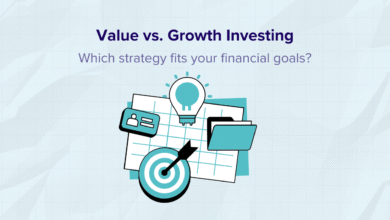5 C’s OF CREDIT

CREDIT HISTORY
Your credit history is essentially a record of how well you’ve managed debt and repayments over time. It contains details about previous credit card debt, loans, and other debts. Lenders review your credit report, which shows details like the names of lenders you’ve worked with, the types of credit you’ve used, and your payment record. You can get a free credit report every 12 months from each of the three main credit agencies—Equifax, TransUnion, and Experian—through annualcreditreport.com.
Check this out Singapore licensed money lender
**Tip:** Some financial institutions, like Wells Fargo, allow eligible customers to check their FICO Score online, without impacting the score itself. This can be a useful way to monitor your credit status.
CAPACITY
Capacity is an indicator of your ability to repay a loan, which is evaluated by looking at your income and employment history. Lenders want to make sure you can comfortably handle loan payments without strain. They may consider factors such as your total income, job stability, and the type of income you earn. Your debt-to-income (DTI) ratio, which contrasts your monthly debt payments with your monthly income before taxes, is a crucial metric in this context. A low DTI shows you’re not overextended financially, which can reassure lenders.
COLLATERAL
When applying for a secured loan, you may need to offer collateral, which is something of value (like a car or a home) that can back the loan. The value of your collateral and any debt secured by it are considered. For instance, if you’re taking an auto loan, the car itself may serve as collateral. With secured loans, there is an added risk of losing the asset if you default, so be sure you’re comfortable with this arrangement.
CAPITAL
Capital refers to any assets or savings you have that can act as a backup if you face financial difficulty. This can include investments, property, or other valuable assets that could be used to repay the loan if needed. Although your primary income is expected to cover loan payments, having extra financial resources can give lenders more confidence in your ability to repay. Capital lowers the risk for the lender by acting as a buffer.
CONDITIONS
Conditions refer to the loan’s intended use, such as buying a vehicle or funding a business. Lenders may also take into account external factors, like the overall economic climate, which might affect your ability to repay. For instance, if the economy is struggling, lenders may be more cautious about approving loans. The loan purpose, along with the broader financial conditions, plays a role in the lender’s decision-making.
SUMMARY
The “5 Cs of Credit” — Credit History, Capacity, Collateral, Capital, and Conditions — provide lenders with a structured way to assess the risk of lending to an individual. By understanding these factors, you can better prepare for the questions lenders may ask when you apply for a loan.



